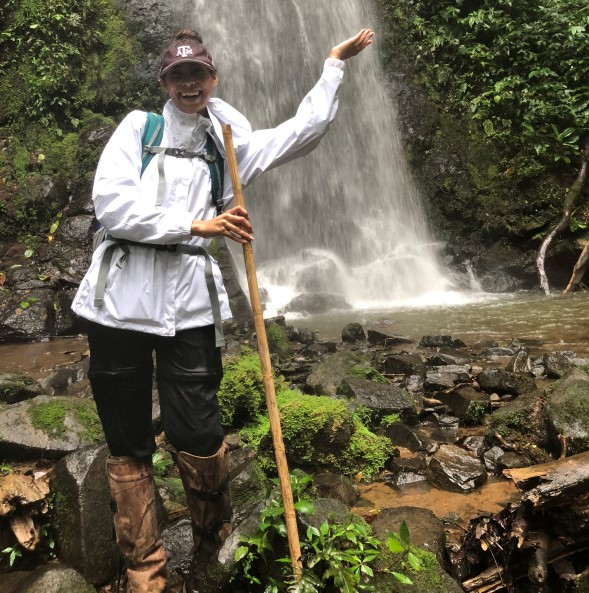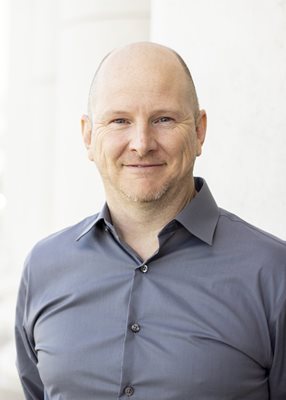News
How One Aggie Student Went From First Gen To Ph.D.
Alaya Keane started college as a first-generation freshman in 2015 and now, as a Fulbright Scholar, is pursuing her doctorate.
By Rob Dixon, Texas A&M Graduate and Professional Studies


COLLEGE STATION, November 3, 2020 – The 2020-21 academic year is a big one for Alaya Keane as she transitions from a master’s to doctoral program in ecology and conservation biology. She is scheduled to embark on a research trip to Brazil this spring—courtesy of a Fulbright Research Grant—where she will assess the effect of agroforestry systems in Brazil’s Atlantic Forest on native marmosets. Her research project represents the last leg of her journey in higher education that began when she entered Texas A&M as a first-generation student in 2015.
A Rough Road at First
Reflecting on her journey, Keane acknowledged that she has had moments of doubt as a result of challenges typical to first-generation students. “I didn’t really have anyone to give me advice about college," she said. "My parents are very supportive. They have always encouraged me and said I have what it takes to be successful in college, but they can’t tell me how to register for classes or explain the benefits of going to visit with professors during office hours.”
Keane’s father is in the military and her family moved around quite a bit when she was growing up. She attributes her interest in working with wildlife to experiences she had with her father, who loves the outdoors and often took her fishing and hiking.
She graduated from a private military high school on a base in San Antonio. Though she was an excellent student, she hadn’t even considered going to college until her senior year of high school. Then she applied for—and received—a scholarship through the Terry Foundation. She said a fully-funded scholarship for four years of undergraduate study was too good to pass up.
But entering college without any idea of what to expect was overwhelming. “Freshman year I had no idea how to navigate college," she said. "It seemed like everyone else had all these connections. Lots of their parents were Aggies and they seemed to know where to go and what to do. I was so lost.”
Keane also started out in what was, for her, the wrong major. “I was just so naïve when I got to A&M,” she said. “I wanted to study animals. Since we had done that in biology class in high school, I thought I should major in biology in college. I didn’t even know we had majors like wildlife and fisheries science or a College of Agriculture and Life Sciences.”
So she found herself in her freshman year, a first-gen student and underrepresented minority student in a STEM field that didn’t really fit her interests. “I would look around my classes or around campus and imagine that everyone else belonged here and I didn’t. I came really close to transferring,” she said.
But she stuck it out and said she knows now that she made the right decision.
Changing Majors and Mindset
Keane decided to stay at Texas A&M and transfer into the College of Agriculture and Life Sciences. She also started finding a community of people beyond her scholarship cohort with whom she shared experiences and interests.
She had to make some personal changes as well. “I realized that I needed a support system," she said. "I came into freshman year feeling like I had to do everything on my own to prove that I belonged here. But I learned that I had to keep an open mind and stop being afraid to admit I didn’t understand something or feeling like I was letting down all women or all African-Americans if I asked a question. I had to embrace a bit of vulnerability.”
Once she was able to overcome the feeling that asking a question was a sign that she didn’t belong, she said she started to find a community. “I was able to connect with other students and realized I wasn’t alone: others struggled with some of the same feelings.”.
She has also been able to build important relationships with faculty and administrators who have become mentors. She attributes much of her success to being proactive and asking for advice. “I learned to reach out for help and found both support and advocacy,” she said.
Reaching out for advice and help is part of what led Keane to stay at Texas A&M for graduate school. When she started researching other universities, she contacted two other students in her program who shared the same scholarship to see what their plans were and where they were applying. They recommended she contact Thomas Lacher, professor of wildlife and fisheries science, for help.
Though she had never taken an undergraduate class with Lacher, he agreed to help her get application materials together. He said during the process that he couldn’t help but notice how impressive a resume Keane had. Instead of helping her apply somewhere else, he suggested she stay on at Texas A&M for graduate school and offered her work in his lab. “It was clear she had exceptional academic skills and creativity,” Lacher said.
Keane accepted the offer, and entered a master’s program under Lacher’s supervision. She is taking full advantage of her opportunities, Lacher said, adding, “In addition to the Fulbright Award, she has also won an NSF Graduate Research Fellowship. And as a first-generation college student she provides inspiration to many of our undergraduates in a similar situation by showing this does not impede your success.”
Keane feels fortunate to have met Lacher and entered a graduate program at Texas A&M. “I wouldn’t have thought during my freshman year that I would still be at A&M pursuing a Ph.D., but here I am," she said. "And it’s because of the relationships I’ve built.”
Research to Make a Difference
As Keane begins her doctoral program this semester, she plans to continue conducting research that will aid in conservation of endangered marmosets in Brazil’s Atlantic Forest system. In particular, Keane’s research project is to study a traditional agroforestry system practiced in Brazil to assess whether it can provide a sustainable habitat for the marmosets and tamarins.
Deforestation has led to a loss of 80-90 percent of Brazil’s incredibly biodiverse Atlantic Forest System, threatening thousands of species of animals and tens of thousands of species of plants, many of which are endemic to the region. Much of what remains is fragmented rather than contiguous, encroached upon by urban sprawl and populated with coffee, sugar cane, cocoa, and eucalyptus farms and cattle ranches.
The focus of Keane’s research is the feasibility of “cabrucas,” or ancient-traditional farming methods that don’t rely on deforestation, to serve as habitats for endangered species of marmosets and tamarins, which are forming mixed species groups. “There’s not a lot left of the Atlantic Forest,” Keane said, “and it’s a unique ecology. If these species are going to survive, it has to be preserved.”
The cabruca farming system, Keane said, could be a key to the preservation of the forest and survival of the marmosets and tamarins. “Utilizing the cabruca system, farmers plant cocoa underneath native shade vegetation instead of clearing,” she said. “I will observe marmosets—how they travel, what fruit and vegetation they’re eating, how they’re behaving—to see if they can thrive in the cabruca environment. If they can, then the cabruca methods can be promoted as an alternative to agriculture that relies on forest clearing. That way the farmers and animals can coexist and thrive together.”
Media contact:
- Rob Dixon, 979-845-3631, rdixon@tamu.edu
